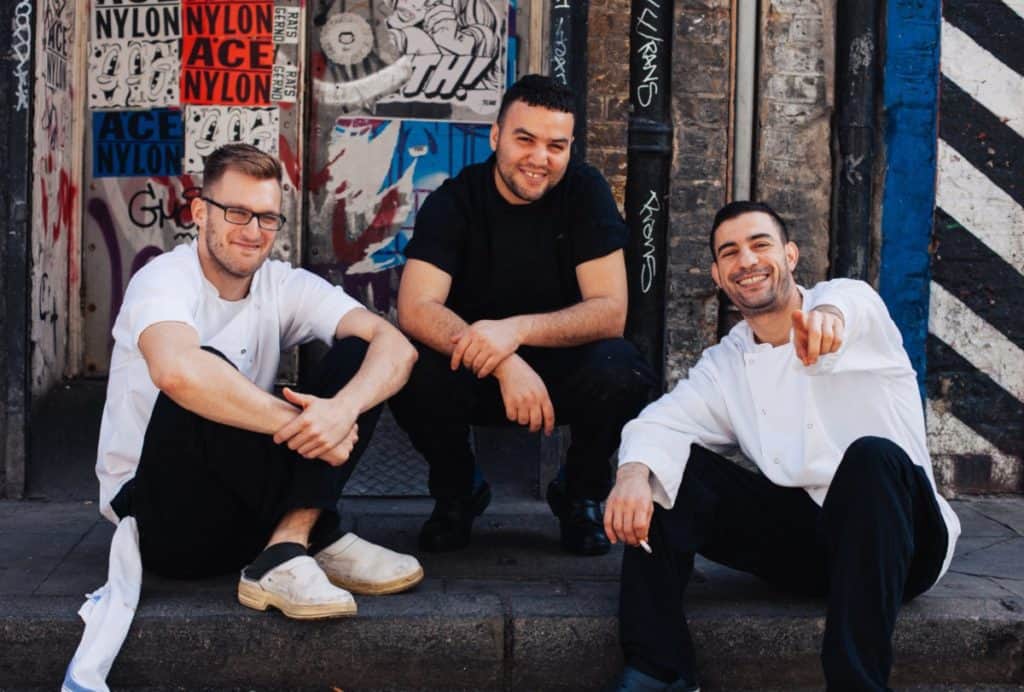
I have at one time or another held many of these various chef roles so in this post I’ll use my personal experience to explain the various chef job titles!
The various chef career titles can be a little tricky to understand at first, but once you get your head around the various roles of being a chef how a kitchen is structured makes a lot more sense.
The structure of chef job roles is a lot like a pyramid. The Executive chef is at the top, followed by the Head Chef, and then Sous Chef. Beneath the Sous Chef are the Chef De Parties, then below them are the Commis and Trainee Chefs.
| Executive Chef |
| Head Chef |
| Sous Chef |
| Chef De Partie |
| Commis / Trainee Chef |
Nearly all kitchens operate on a brigade system, (I’m not aware of any that don’t but felt I should write ‘nearly’ as I’m sure there are some examples out there!). This brigade system has a clear rank structure and each chef within the kitchen has a clearly defined role.
Whilst explaining what each chef position is, I’ll start with the top of the pyramid and work downwards. Just bear in mind when beginning a chef career that unfortunately a chef has to start at the bottom of the career ladder and work upwards!
that unfortunately a chef has to start at the bottom of the career ladder and work upwards!
What Is A Chef Patron?
A chef patron is the name usually given to a chef who owns their own restaurant, or one that has their name above the door as part of a business partnership. This is the dream that many chefs aspire towards.
We are going to slip this one in at the top even though it wasn’t in our description earlier. I’m sure it will be obvious to most readers that if the chef is the owner of the restaurant then they outrank everyone there. They are the top of the kitchen hierarchy!
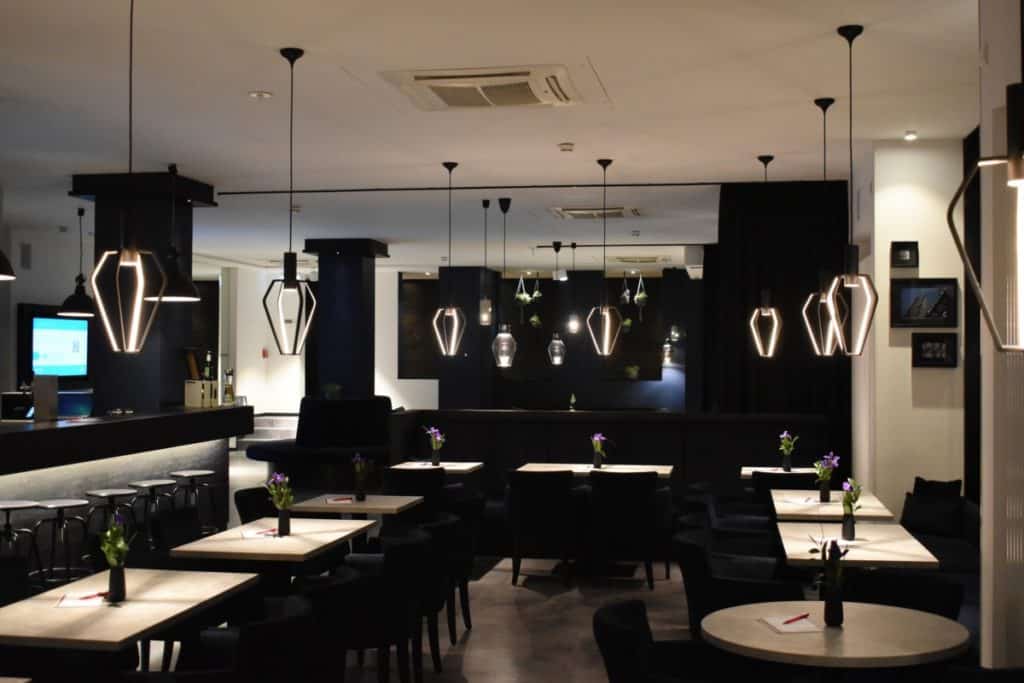
Chefs that also own the restaurant tend to have their focus pulled in lots of different directions, as they have to be a business person as well as a chef.
The amount of time a chef patron spends in the kitchen is dependent on the size of the kitchen brigade they have employed. If the owner has just one or two supporting chefs then they will spend a huge amount of their time cooking and running the kitchen.
If the chef patron has a larger number of kitchen staff they may choose to focus more on the front of house or business role. In this instance they have a kitchen role more similar to that of an executive chef.
What Is An Executive Chef?
An Executive chef is the title given to the person who has overall control over the kitchen. The Executive chef has responsibility for the business as a whole and the head chef will report to them.
Gordon Ramsey is a great example of an executive chef. He has many restaurants all around the world. He can’t be cooking in all of them at the same time. Instead he installs Head chefs that he believes in, and then advises and oversees menu planning, profit margins etc.
is a great example of an executive chef. He has many restaurants all around the world. He can’t be cooking in all of them at the same time. Instead he installs Head chefs that he believes in, and then advises and oversees menu planning, profit margins etc.
The role of executive chef is not just limited to celebrity chefs. Think of any restaurant with more than one outlet and chances are they will have an executive chef.
is not just limited to celebrity chefs. Think of any restaurant with more than one outlet and chances are they will have an executive chef.
Executive chefs work closely with the head chef. Their experience is used to assist the the head chef (or head chefs), in any way that is needed. This may be menu planning, liaising with suppliers, organising training courses, and generally anything that the head chef will benefit from.
Executive chefs do not cook in the kitchen. The possible exception to this is when they are experimenting, trying out new dishes for a menu or getting control of a kitchen that has gone wrong for whatever reason.
In general service, an executive chef is not in the kitchen and won’t be in there during the day prepping either. They tend to come in during normal working hours and as they are at the top of the pyramid they command the greatest respect when they are there.

It can take a long time to become an executive chef. This is a role reserved for seasoned profession chefs with many years of on the job experience under their belt!
What Is A Head Chef?
A Head Chef is responsible for the day to day running of the kitchen. This includes tasks such as menu planning, liaising with suppliers, hiring and firing of staff, and handling all the cost considerations required to run a profitable restaurant.
A Head Chef  will have an office and spend a part of their day doing the necessary paper work for the kitchen. Paper work can involve checking invoices are correct, ensuring the kitchen complies with food hygiene regulations
will have an office and spend a part of their day doing the necessary paper work for the kitchen. Paper work can involve checking invoices are correct, ensuring the kitchen complies with food hygiene regulations , arranging training for staff.
, arranging training for staff.
It’s worth remembering that Head Chefs conduct interviews and hire new chefs, as well as having the ability to fire them, so it’s always important to stay on their good side.
Another vital role they play is the link between the owner / management and the kitchen staff.
If the owner wants something relayed to the kitchen it will always go through the Head Chef. This helps strengthen the camaraderie and respect for the head chef. They act as a buffer and are good at shielding the lower ‘ranked’ chefs from any unnecessary interference.
Chefs aren’t known for having a huge amount of respect for management (it’s probably fair to say). However, as long as they are not outright rude, they tend to get away with this as long as they show the Head Chef respect.
What Is A Sous Chef?
As a Sous Chefs it was my responsibility to be in the kitchen every day cooking and providing guidance to all the other chefs. Sous chef means second chef, and we work closely with the head chef to carry out their vision for the restaurant.
There can be one, or several Sous chefs working in the kitchen at the same time, usually between 1 and 3 based on the overall size of the brigade
If I may use an armed forces analogy; The Head Chef is the Officer handing out the orders, where as the Sous chef is the Sergeant on the ground, making sure orders are carried out correctly on a daily basis.
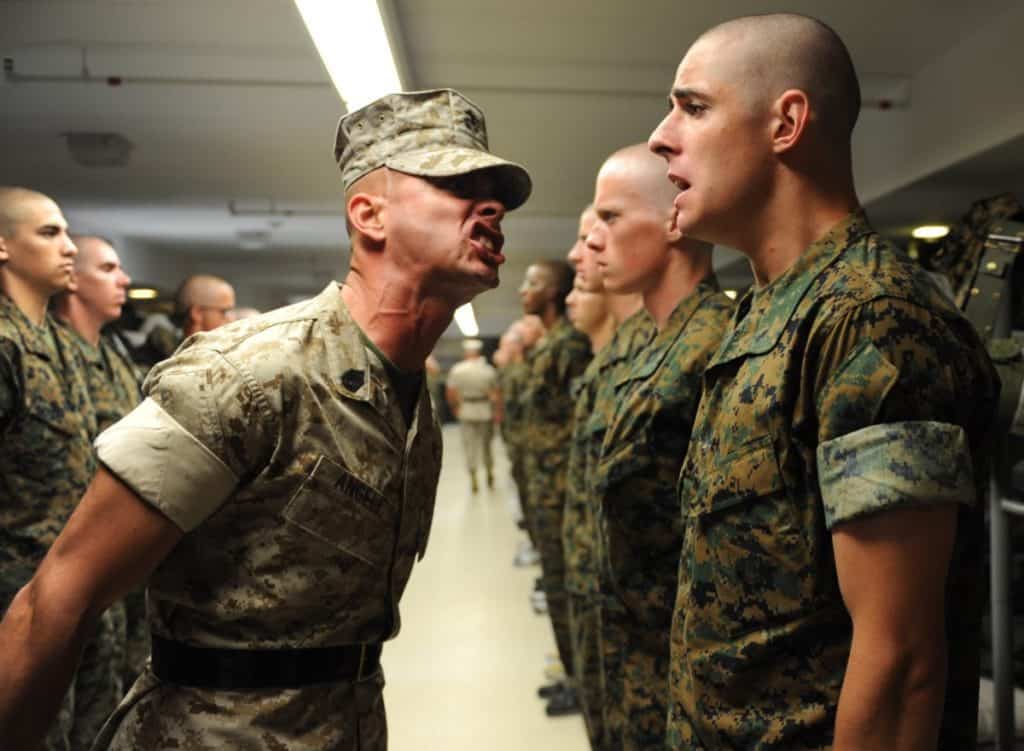
This ‘in the trenches’ approach earns the Sous Chef a large amount of respect as they are there putting the same amount of work in as everyone else. Sometimes in fact, the Sous chef can find themselves in a position where they are more respected than the Head Chef.
a large amount of respect as they are there putting the same amount of work in as everyone else. Sometimes in fact, the Sous chef can find themselves in a position where they are more respected than the Head Chef.
It can sometimes be perceived that the Head Chef is the person that turns up to give out the orders before retreating to their office, but the sous chef is the one actually there doing the job with the other chefs.
Sous chefs will help with menu planning and ordering but they tend to stay away from the paperwork side of things.
One final thing to note is that there can be Junior Sous and Senior Sous roles in the kitchen depending on the size of the brigade.
What Is A Chef De Partie?
As a Chef de Partie I was responsible for making sure that my section ran smoothly. Chef de Partie means head of section and I was required to issue jobs to the commis chefs whilst also communicating with the Sous Chefs and Head chef on a daily basis.
There are many different sections that a Chef de Partie may be expected to run. The most commonly found are;
- Veg
- Larder
- Meat
- Fish
- Pastry
Once qualified most chefs are promoted to chef de partie level and are given a section to run.
level and are given a section to run.
These head of section chefs will prep and cook the food alongside all the other chefs on a daily basis. They also have the responsibility of training the commis chefs that they command beneath them.
Being a chef de partie can be a challenging role. They are the go between from the Sous chef to the Commis chefs . If a Commis on their section messes up then the Chef De Partie is usually the one who takes the brunt of the complaints from the Sous chef. They then have to rectify the situation.
. If a Commis on their section messes up then the Chef De Partie is usually the one who takes the brunt of the complaints from the Sous chef. They then have to rectify the situation.
It’s worth noting that there is an unwritten hierarchy among chef de parties on various sections. Most new CDPs will start by running the veg section then moving onto larder section, then fish section before reaching the top CDP role running the meat section!
In order to progress from CDP to sous chef, the chef has to be able to demonstrate that they are competent on all sections. This can take several years and is dependent on positions becoming available.
Finally, it’s possible to have more than one CDP on a section and they run it between themselves. This is based on the size of the brigade. In my experience a CDP would not be expected to have more than 2-3 Commis chefs working under them.
What Is A Commis Chef?
This is the level where things get a little more blurry in terms of what it actually means.
Let’s start with the job role of a commis chef;
As a commis chef, my role was prepare and cook the cuisine to the standard required by the Chef de Partie in charge of my section. Commis chefs are the lowest ranked chefs in the kitchen and I can say it was definitely a steep learning curve at times.
Commis chefs are basically responsible for doing any of the kitchen duties required. For example, if there are bags of carrots to be peeled and chopped then these are going to the commis chef to be done.
are basically responsible for doing any of the kitchen duties required. For example, if there are bags of carrots to be peeled and chopped then these are going to the commis chef to be done.
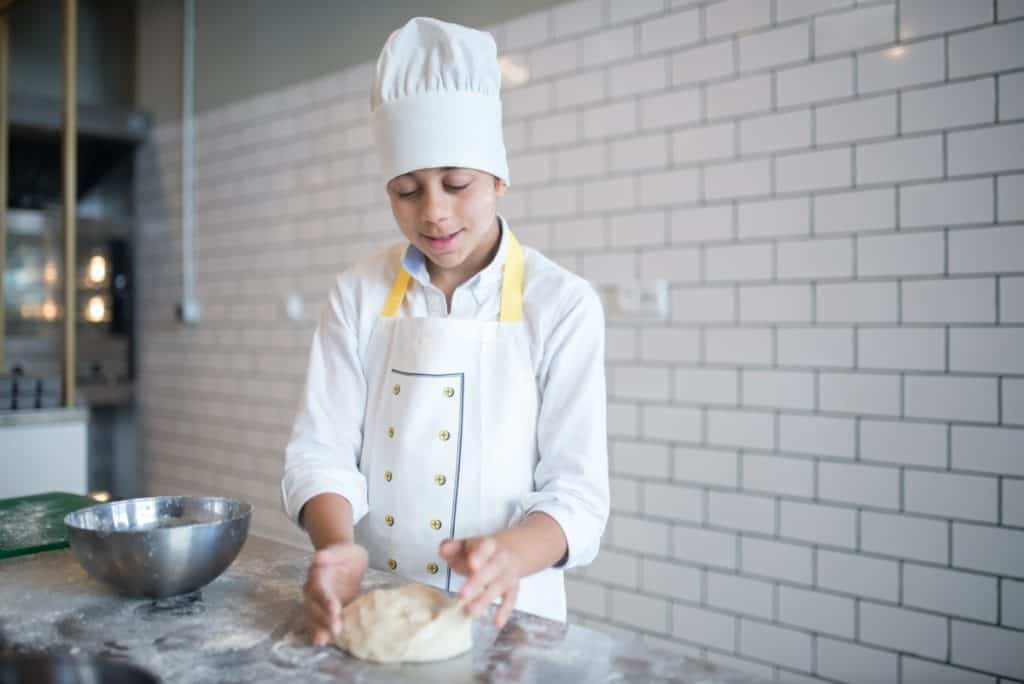
Again there is a hierarchy among Commis chefs on different sections as with the Chef De Parties shown above.
Commis chefs can sometimes have a hard time from the Chef de Parties but it is rare for the Sous Chefs and Head chef to deal directly with the commis chefs. Most kitchens are friendly places and everyone tends to be very welcoming towards new chefs. It tends to be the chef de parties who take the brunt of any criticism.
Are Commis Chefs Qualified Chefs?
This is where things get a little more tricky for beginners to understand.
A Commis chef is the term used to describe either a trainee chef, or a qualified chef that hasn’t yet progressed up the career ladder. I was a commis chef whilst training and then became a chef de partie once qualified. However, different kitchens use different terminology
Some kitchens will only hire Commis chefs that are qualified or have experience, where as others are happy to take on new chefs at Commis level and train them up.
If looking for a chef job and you don’t yet have any experience it is absolutely worth looking at commis chef roles. Many kitchens are happy to take on new recruits in this way. Trainee and Apprentice chef roles are becoming more common but these terms aren’t always used.
Many kitchens are happy to take on new recruits in this way. Trainee and Apprentice chef roles are becoming more common but these terms aren’t always used.
If you’re looking to become a chef then apply for Apprentice chef, Trainee chef and Commis chef roles. All role names mean a similar thing and are used interchangeably by different kitchens depending on where you are in the world.
If a kitchen is looking for an experienced commis chef they will usually make this clear on the job advert.
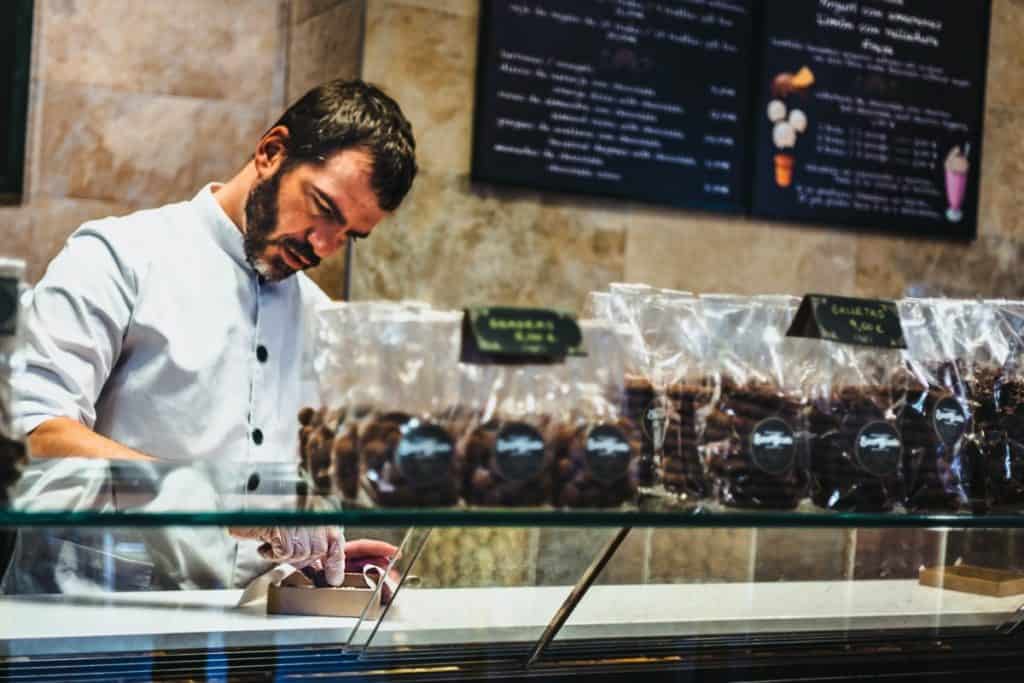
What Does Pastry Chef Mean?
Whilst working as a Pastry Chef I was responsible for making desserts and breads for the restaurant. The role of Pastry Chef is very varied, we don’t just make pastry!
Pastry section is the name given to the dessert section, which handles items such as breads, desserts, cakes and chocolates.
Some chefs choose to specialise as pastry chefs and spend their whole career on that section. It’s possible to climb the ladder purely on pastry section, eventually becoming Head Pastry Chef.
For example, a chef that has specialised in pastry would not be able to do a service in the main kitchen. Vice versa there are lots of experienced chefs who never spend any time in the pastry section and would not be able to do the intricate things required in there.
However, in a lot of circumstances, there is interchanging of chefs between main kitchen and pastry kitchen, and a lot of chefs are able to do both.
The higher the quality of the restaurant cuisine the more likely it is that they have chefs dedicated solely to pastry section.
Some chefs love pastry section whilst others dislike it. I personally always found the cool section a nice change to the heat of the main kitchen!
What Does Kitchen Porter Mean?
Not technically chefs but an important part of the kitchen eco system that I felt deserved a mention!
Kitchen porters are responsible for washing the pots and pans, plates, cutlery and generally assisting the chefs with any cleaning related duties that are needed within the kitchen.
Chefs should always be extra polite and nice to K.Ps for two reasons;
- Firstly, it’s the right thing to do, they do what is a tough job very well, under difficult conditions.
- Secondly, as a chef they can make your life very difficult indeed. If you upset a KP then you will more than likely find the pans you need for service at the back of the queue to be washed. The chef isn’t going to complain to the KP that the food isn’t ready, and your complaints about lack of pans will fall on deaf ears!
To Sum Up
I hope readers have found this post helpful. Understanding this structure will give you a huge advantage at any interviews as it helps demonstrate your general knowledge of how kitchens operate, which in turn shows the Chef you are serious about a catering career and know what to expect!
